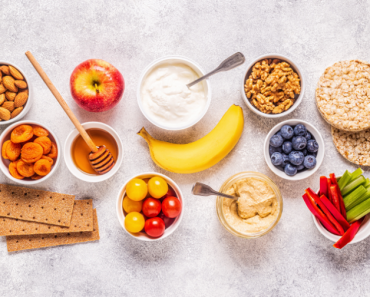In the hustle and bustle of modern life, maintaining balanced nutrition can seem like a daunting task. Yet, achieving a diet that meets all our nutritional needs is crucial for overall health and well-being. A balanced diet provides the body with essential nutrients, vitamins, and minerals required for optimal functioning. Here are some practical tips to help you maintain balanced nutrition in your daily life.
First and foremost, understanding the food groups and their significance is key. A balanced diet includes a variety of foods from all major food groups: fruits, vegetables, grains, protein sources, and dairy or dairy alternatives. Each group provides different essential nutrients. For example, fruits and vegetables are rich in vitamins, minerals, and fiber. They are low in calories and can help reduce the risk of chronic diseases. Incorporating a rainbow of fruits and vegetables ensures a wide range of nutrients.
Grains, particularly whole grains, are another crucial component. Whole grains such as brown rice, oats, and whole wheat provide fiber, which aids in digestion and helps maintain stable blood sugar levels. They also offer essential B vitamins, which are vital for energy production. It’s advisable to make at least half of your grain intake whole grains.
Proteins are the building blocks of the body and are necessary for repairing tissues and maintaining muscle mass. Including a variety of protein sources in your diet, such as lean meats, fish, eggs, beans, and nuts, ensures you get all the essential amino acids. Plant-based proteins are particularly beneficial as they are lower in saturated fats and can contribute to heart health.

Dairy products, or fortified plant-based alternatives, are important for calcium and vitamin D intake, which are essential for bone health. Including moderate amounts of dairy, such as milk, cheese, or yogurt, can help maintain strong bones and teeth. For those who are lactose intolerant or prefer a plant-based diet, options like almond milk, soy milk, and fortified orange juice can be excellent alternatives.
Another crucial aspect of balanced nutrition is portion control. Overeating, even healthy foods, can lead to weight gain and associated health problems. Using smaller plates, being mindful of hunger cues, and avoiding distractions while eating can help manage portion sizes effectively. Listening to your body and eating until you’re satisfied, not stuffed, can prevent overeating.
Hydration is often overlooked but is a vital part of balanced nutrition. Drinking adequate amounts of water helps maintain bodily functions, supports metabolism, and aids in the elimination of toxins. Aim for at least 8 glasses of water a day, and more if you are physically active or in a hot climate. Herbal teas and water-rich foods like cucumbers and watermelons can also contribute to your hydration needs.
In addition to food choices and hydration, the timing of meals plays a significant role. Regular, well-spaced meals help maintain energy levels throughout the day and prevent overeating. Skipping meals can lead to energy crashes and increased cravings, often resulting in unhealthy food choices. A good practice is to have three main meals with healthy snacks in between if needed.
Finally, it’s important to limit the intake of processed foods, added sugars, and excessive fats. These can contribute to a variety of health issues, including obesity, heart disease, and diabetes. Instead, focus on whole, unprocessed foods that are nutrient-dense and provide long-lasting energy.
In conclusion, balanced nutrition is about variety, moderation, and mindful eating. By understanding the different food groups, practicing portion control, staying hydrated, and choosing whole foods over processed options, you can create a diet that supports a healthy and vibrant life. Making small, sustainable changes can lead to significant health benefits and a better quality of life.






